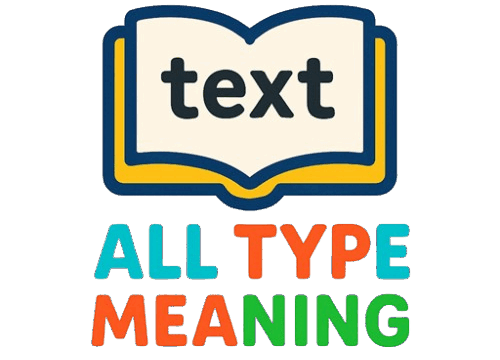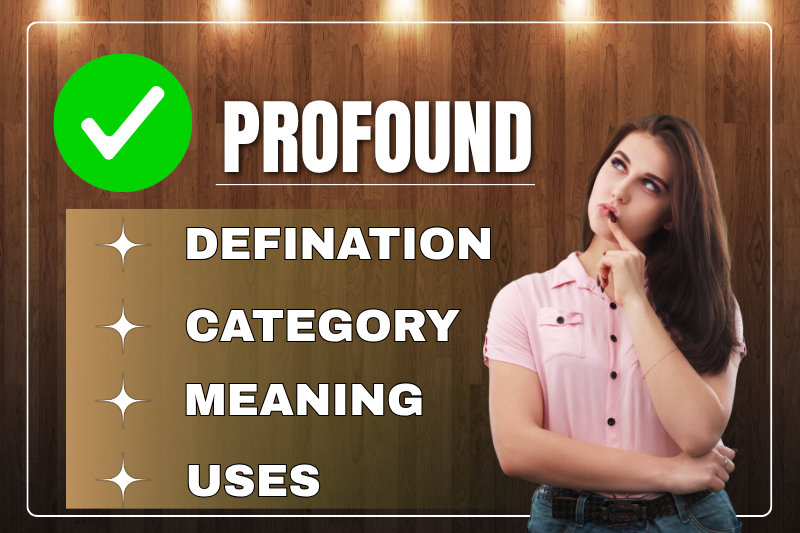The digital world has changed the way we understand language, especially with the rise of online discussions and deep conversations.
In this new age of thoughtful communication, exploring deeper interpretations and significance has become common. One such phrase that often comes up is “profound meaning.” But what exactly does profound meaning imply, and how can it be applied in different contexts?
In this article, we will explore the concept of profound meaning, its various interpretations, and how to express similar ideas in different tones and settings.
By the end, you’ll have a clear understanding of what profound meaning entails and how to convey similar sentiments in professional, polite, and casual ways.
What Does “Profound Meaning” Mean?
“Profound meaning” refers to a deep, insightful, and often significant interpretation or understanding of something. It goes beyond the surface level to reveal something more impactful or thought-provoking.
It is used to describe ideas, statements, or experiences that evoke strong intellectual or emotional responses because of their depth and significance.
Example:
Speaker 1: “What did you think of the poem?”
Speaker 2: “It has a profound meaning about life and loss.”
This phrase is popular when discussing literature, art, philosophy, or any topic that encourages deeper reflection.
When to Use “Profound Meaning” in Conversations
The phrase “profound meaning” is often used in thoughtful discussions, academic conversations, or when analyzing something in depth. It is more suitable for formal or semi-formal contexts rather than casual everyday talk.
5 Polite, Professional, and Casual Alternatives to “Profound Meaning”
While “profound meaning” is a clear way to express deep significance, there are several alternatives depending on the tone and setting. These range from formal to casual expressions.
-
Deep Significance (Formal/Professional)
“Deep significance” is a strong, formal alternative that emphasizes the importance or weight of a concept or event. It fits well in professional or academic settings.
Example:
Colleague 1: “What’s your take on the report’s findings?”
Colleague 2: “They carry deep significance for our future strategy.”
-
Meaningful Insight (Formal/Professional)
“Meaningful insight” highlights understanding or perception that adds value and depth. It is often used in presentations, reviews, or analyses.
Example:
Professor: “The study provides meaningful insight into climate change impacts.”
-
Thought-Provoking (Neutral/Informal)
“Thought-provoking” suggests that something stimulates careful thought or reflection. It can be used in both formal and informal conversations.
Example:
Friend 1: “Did you see that documentary?”
Friend 2: “Yes, it was really thought-provoking.”
-
Deep Message (Informal)
“Deep message” is a more casual phrase often used in everyday conversations to describe something with important or lasting meaning.
Example:
Friend 1: “What did you think of the movie?”
Friend 2: “It had a really deep message about friendship.”
-
Meaningful (Informal)
“Meaningful” is a simple, widely used word to express that something has importance or value, appropriate for many contexts.
Example:
Person 1: “Why does that quote stand out to you?”
Person 2: “Because it’s meaningful to my experience.”
Want to know about OFC meaning? just visit here at All Type Meaning
Conclusion
Profound meaning may sound like a complex phrase, but it’s part of a broader set of expressions used to communicate depth and significance in ideas and experiences.
Whether you’re talking with colleagues, friends, or in academic settings, knowing how and when to use alternatives to “profound meaning” helps you convey your thoughts clearly and appropriately.
By choosing the right expression, you can adapt your message to different audiences and contexts, whether aiming for a professional, polite, or casual tone.

